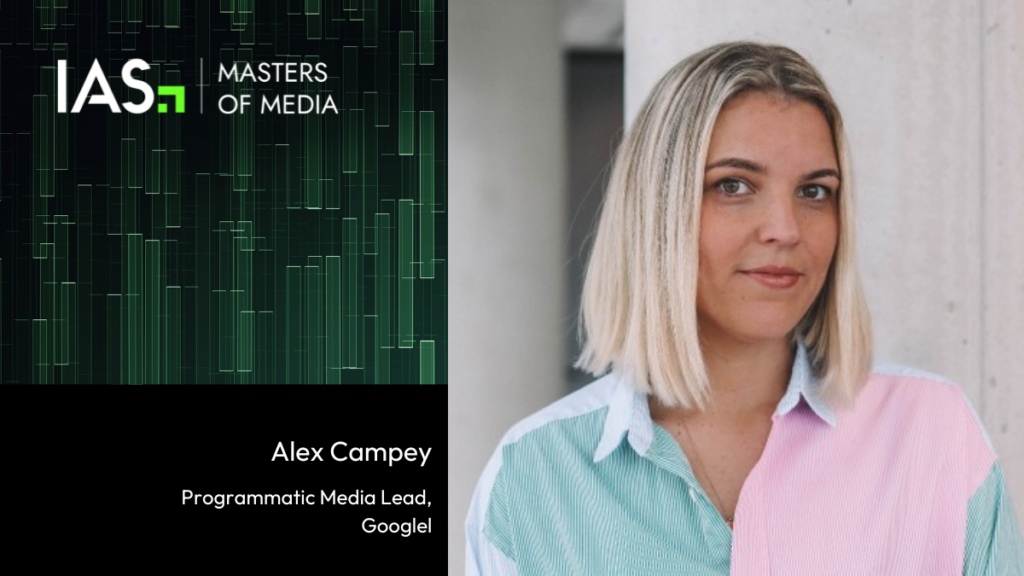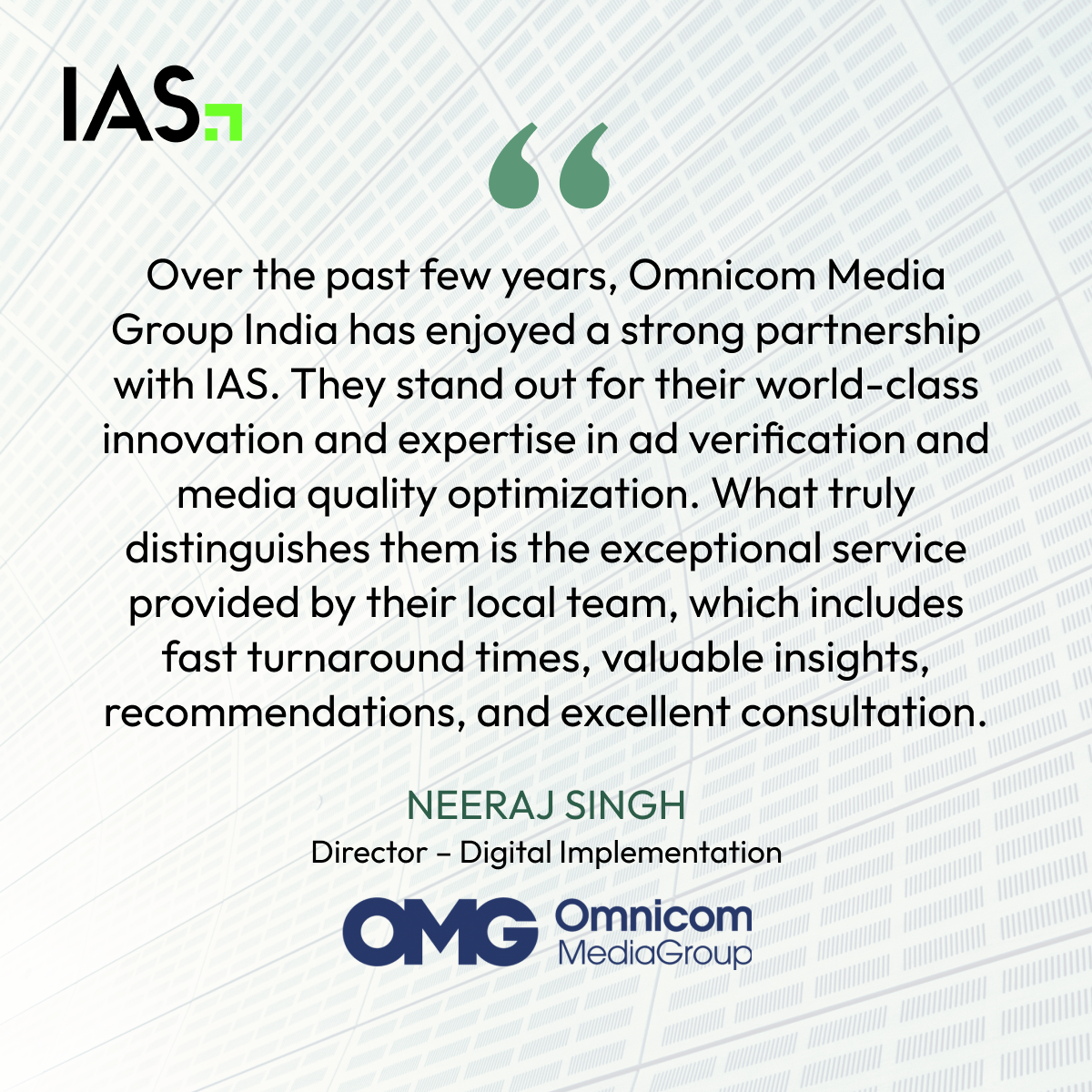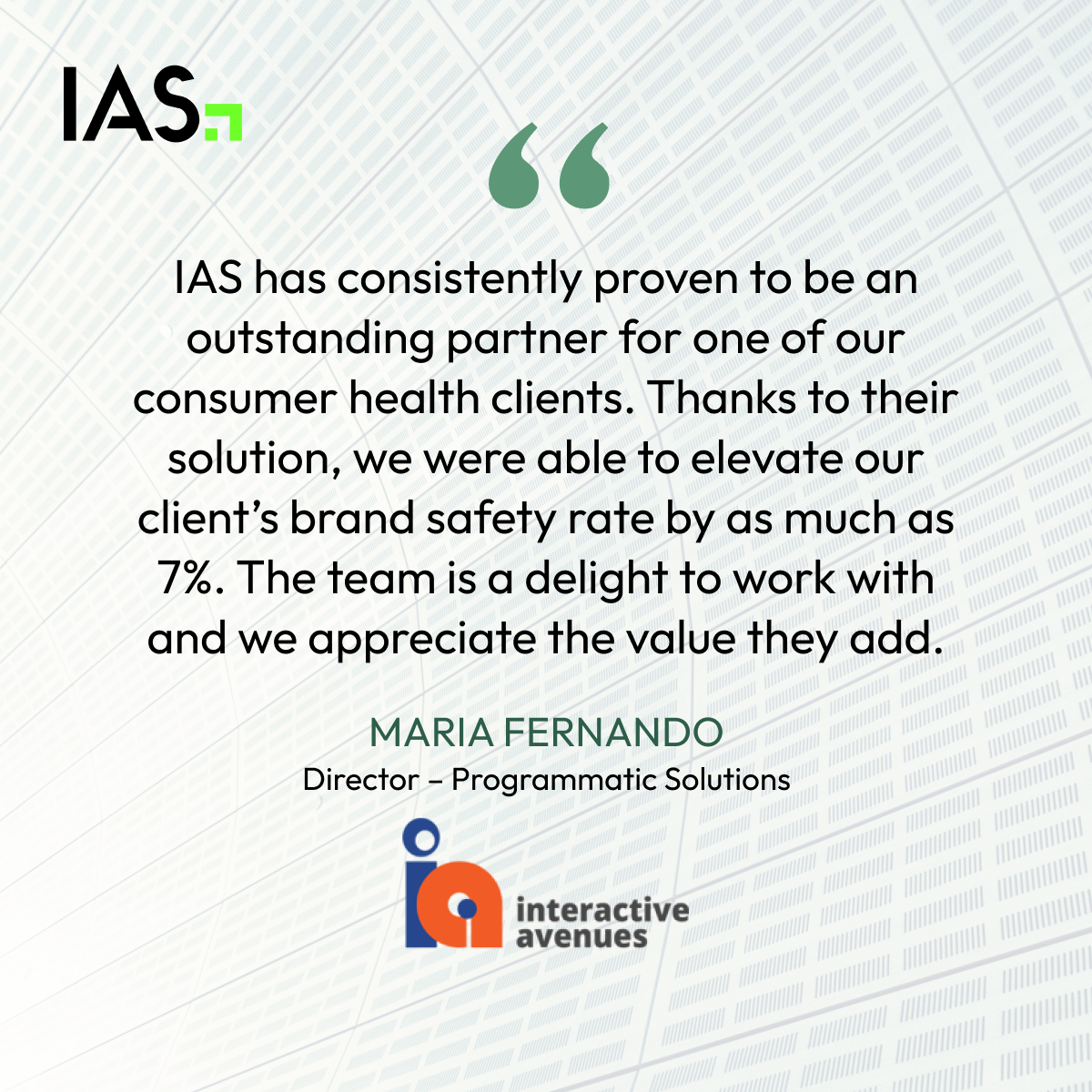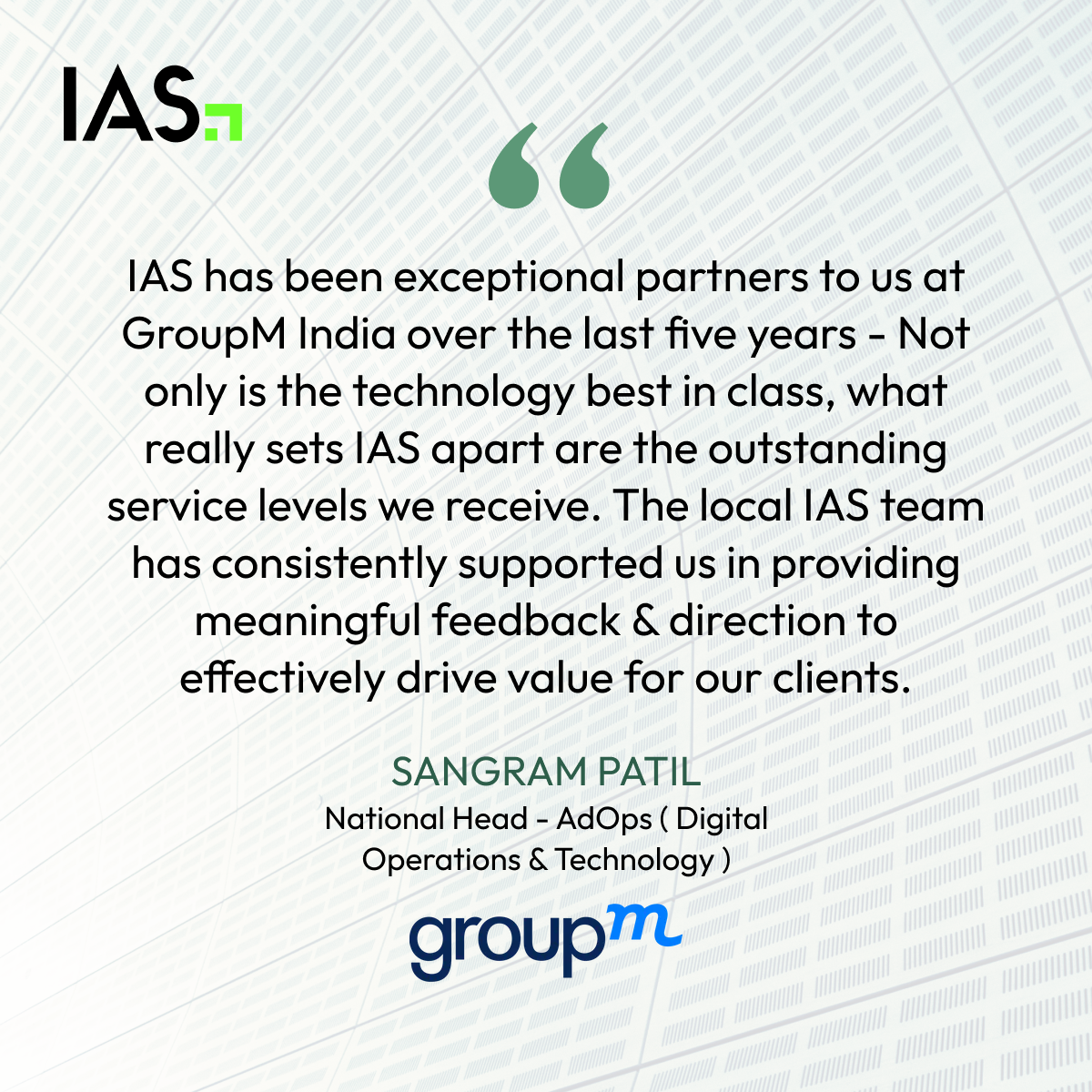
In this exclusive “Masters of Media” series, Integral Ad Science (IAS) speaks to the Movers and Shakers of the Southeast Asia advertising industry, on all matters digital.
Alex Campey is currently a Programmatic Media Lead at Google, driving multichannel media sales. Driving uptake of Google’s Demand Side Platform DV360, and supporting both local and international brands on their media consolidation strategy.
Integral Ad Science (IAS): Alex, please tell us about your digital advertising journey and your current role?
Alex: I started my career working in SEM & SEO for an indie agency based out of Sydney – this was really my springboard into digital. From there I worked as a Performance Operations Specialist for a programmatic retargeting vendor, and then shifted gears to become an Account Manager at Spotify. Before finding myself at Google, working across Display and Video 360, their Demand Side Platform – focusing on CPG, Entertainment, Auto and QSR clients. Within my role at Google I help agencies and advertisers understand the value of consolidating media into one buying platform – and drive uptake of new formats and features to support their growth and brand ambitions.
IAS: How has the COVID-19 impacted the digital advertising landscape in ANZ?
Alex: From a buying perspective – it has significantly changed consumer behaviour and as an extension of this, influenced the media people are consuming, or not consuming. We’ve seen a growth in people consuming BVOD or Catch up TV as a result of people spending more time at home, and a shift in time spent streaming music per day. [Supported by eMarketer Global Media Insights Report]
From a people perspective – we’ve seen agencies quickly change and adapt to this new ‘working from home’ environment. As a result of this our team have also pivoted to online training across planning, buying and optimisation – aiming to help upskill teams as they work from home.
IAS: Programmatic started out focused on selling cheap, remnant inventory. How has this perception changed today?
Alex: This has been shifting over the last few years. People have started to see the value of programmatic as an efficient way to plan and execute their campaigns at scale – across a host of premium inventory. Buying changes like programmatic guaranteed have really helped to change this view, giving buyers the comfort of direct buys, with the flexibility and consolidated view they know programmatic for.
Programmatic buying is viewed as flexible, nimble and easy to use. Advertisers can buy how they want [guaranteed, non guaranteed] and leverage the targeting they want – all with a consolidated view of their media.
IAS: What are the most common targeting strategies that programmatic buyers use across DV360 to reach their audience, efficiently?
Alex: Given the different industries and advertisers that leverage DV360, there is a wide range of targeting strategies used. CPG advertisers for example tend to stick to broad demo plays to drive reach, whereas Finance brands tend towards higher intent audiences to drive conversions. What we are seeing more broadly is, reliance on first-party data activation – or for brands with a lack of first-party data, a better focus on how to fill that gap. I think as we move into 2021, first-party data will become more crucial for advertisers so this will continue to come to the forefront.
IAS: What are some of the best practices when it comes to deploying programmatic?
Alex: Brand Safety, Testing and Measurement.
- Brand Safety: Implementing relevant brand safety guardrails, like category, content and keyword exclusions. But also including pre-bid filtering to ensure you are only reaching your customers in relevant, and appropriate environments
- Testing: Trialling new formats and features or testing new bid strategies or audience targeting is the best way to make your programmatic buying work harder for you
- Measurement: Test, measure, learn – don’t just try something, measure its impact leveraging A/B testing frameworks, or brand lift functionality – then scale across your buying
IAS: With more people staying indoors this year, are you seeing a shift to buying CTV programmatically?
Alex: Yes, with people staying indoors more we are seeing this shift occur. The Connected TV opportunity is huge – this is a digital screen that’s a high impact premium space that is often viewed by a one to many audiences. With the increase in time spent at home, which has been accelerated due to COVID, advertisers are quickly shifting the perception and focus on this new environment as a way to communicate with consumers. This increase in focus isn’t only across BVOD, but we are also seeing increases in people streaming YouTube through connected TV, in fact, 7M Aussies watched YouTube on their TV since March.[Full report here]
IAS: What are the key programmatic trends for 2021?
Alex: I think digital audio is going to take the driver’s seat in 2021, with new functionality across DAI [Digital Ad Insertion] for podcasting, voice-activated ads and a renewed focus on measurement and creative. Digital Audio has been an afterthought for many advertisers. However given the shifts in consumer behaviour across 2020, and the increase in time spent with this format – it can’t go unnoticed any longer.
Google has also refocused on Audio, with their announcement of brand lift measurement for audio – and the launch of Audio Mixer which will allow brands/agencies to author their own creative platform. We are making it easier for advertisers to create, plan and measure the impact of their audio buys.
IAS: What’s your favourite book/podcast/movie and why?
Alex: My favourite book at the moment is Zero to One by Peter Thiel, the co-founder of Paypal. For me, this book sets out a guide for leaders, and notes that a true leader must think for themself, or step outside of their comfort zone. Ultimately by doing something that somebody else has already done/said you take the world from 0 to n, but by creating something new or thinking outside of the box, you take the world from 0 to 1.
IAS: What is your advice to the fresh talent in the industry?
Alex: Put your hand up for new things – you will only learn and grow from stepping out of your comfort zone.
 Share on LinkedIn
Share on LinkedIn Share on X
Share on X

